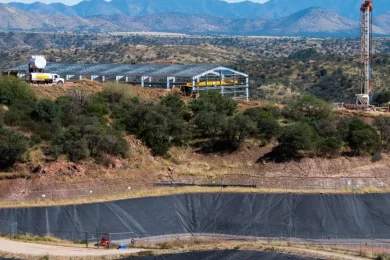Mining can be a catalyst for socio-economic development in Africa Antonio Pedro, Chief of Infrastructure and Natural Resources Development, United Nations Economic Commission for Africa (UNECA) writes in the latest ICMM newsletter.
Despite its huge mineral wealth and success stories such as Mozambique, Ghana and Uganda, poverty levels across sub-Saharan Africa remain high. Many attempts have been made to correct this inequity by using mineral wealth to promote broad-based, integrated growth and development. To date these attempts have met with limited success.
There is now a unique window of opportunity to extract better benefits from Africa’s mineral resources. In spite of the current economic downturn, catalysts include:
1) governance gains as shown by the increasing role played by civil society organizations on issues of natural resources
2) the commodity boom and price increases of recent years fuelled by impressive economic growth in China and India
3) increased competition for Africa’s mineral resources
4) a desire by global players to link mineral resources extraction with socio-economic development through measures beyond revenue transparency.
African governments are aware that mineral resources represent economically and strategically important assets. Effective mining sector governance is critical to harnessing these resources for growth and development and is the focus of ongoing attention involving all players, including the private sector. Other strategies include broadening the economy base and developing linkages (backward, forward and lateral) throughout the value chain between mining and other sectors of the local economy to maximize development and social outcomes. Equally important and thanks in part to the leadership of bodies such as ICMM, companies are managing issues such as corporate responsibility, community development and environmental stewardship with increasing professionalism and sophistication – often leading them into the debate about public governance.
For its part, UNECA has established an international study group to review policies, laws, standards, codes and practices in Africa’s mining regimes, in order to understand the extent to which mining is currently contributing to social and economic development.
Following the review stage, UNECA will be actively seeking private sector input during the development of standards and codes to enhance mining’s contribution, some of which will be informed by the work already done by ICMM such as the Resource Endowment initiative and materials stewardship program.
In October 2008, at the First African Union Conference of Ministers Responsible for Mineral Resources development, a new continental vision for mining was proposed to underpin broad-based sustainable growth and socio-economic development, which will be approved by ministers at the next meeting of the African Mining Partnership in Durban, South Africa in February 2009. To implement the vision, several strategies have been articulated. These include the need to improve the quality of Africa’s resource potential data, address infrastructure constraints through initiatives such as the NEPAD Spatial Development Programme and promote collaboration and competition among industry players to enhance competency, innovation and economic diversification.
Overall, it was recognised that there is a need to enhance the capacity of African institutions to administer the sector.
Several complementary initiatives involving the wider private sector are also underway. For example, the Investment Climate Facility for Africa is a cross-sector initiative working to remove the barriers that exist to doing business in Africa, and Business Action for Africa is working to positively influence policies needed for growth and poverty reduction.
Much is at stake here. Socioeconomic development and mining activity must work hand in hand. If a sense of fairness does not prevail, real conflict can result. Finding the way forward requires careful negotiation involving all interests. Success comes when common ground is established and all parties end up better off as a result – local communities, companies and host countries.









